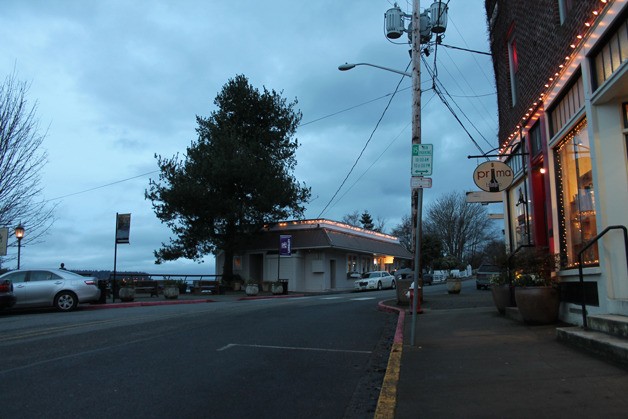A season from late May to early September is set for food trucks in Langley.
It was not done without some debate among the Langley City Council members during their meeting Monday night. Councilmen Thomas Gill and Jim Sundberg were at odds over the role of the city government in regulating business, with Gill in favor of creating a “good business climate” and Sundberg wanting to ensure protection of the “public good,” by limiting hours of operation and setting a season for operation.
Specifically, Gill and Sundberg argued about possible restrictions not currently written into the ordinance that would exclude food trucks during Choochokam in July. Other businesses aren’t burdened by such restrictions, Gill said, so why would the city limit commerce in a new industry?
“I’m saying the rules already exist and let’s abide by the rules,” Gill said.
The ordinance was in the works for months, and the city council adopted it as is in a 4-1 vote without the additional restrictions. The rules establish a permit process and regulations for mobile food vendors to operate at selected sites. The council did amend it, however, to include language that allows for further changes at its discretion, and the ordinance sunsets at the end of this year.
Councilman Bruce Allen, who is a Choochokam Music & Arts Festival board member, requested to speak with the planning director about exclusions during the Choochokam Music & Arts Festival weekend before voting on the ordinance. He cast the lone nay vote.
Earlier this year, new Director of Community Planning Michael Davolio rolled out the proposed ordinance and was tasked with establishing a season and further defining the costs. Previous planning directors had done the leg work of drafting much of the ordinance, which sets up mobile food vendor areas (specifically excluding trailers) in the downtown business district — Cascade and Anthes avenues and First and Second streets. City councilwoman Rene Neff suggested excluding the slower business months of January and February for food trucks because they might take a bite out of existing restaurants. But, Davolio said, the city received input from the Langley Main Street Association that existing brick-and-mortar restaurants see the busy season being between Memorial Day in late May and Labor Day in early September.
“That’s the time of year when everybody is slammed,” Davolio said in a phone interview before the council meeting, adding that the rules did not protect restaurants but recognized the city’s interest in ensuring more equitable rules for long-term tenants in the city.
“We want to acknowledge the fact that they pay property taxes here,” he added. “The food truck does not.”
Not every business is on board. Kim Tiller, who owns Whidbey Island Soap Co. on First Street, chided the city for seeking to bring in food trucks “better fit for large, noisy metropolitan areas not small, bucolic, seaside towns.” Reading from a four-page statement, Tiller said she had concerns about generator noise, greasy food smells, loss of parking, impact to existing business, and the potential change to the city’s vibe. She also asked that the city address the problem of having too few visitors during the winter.
Fred Lundahl, representing both the Langley Main Street Association and Langley Chamber of Commerce as a board member of each, said both groups fully support the mobile food vendor ordinance and believe that, with a review process, it will attract business and help existing restaurants during busy months.
In addition to the previously laid out $100 application fee, food truck vendors will be required to obtain a $100 business license. Other costs, such as a possible per day fee or percentage of sales, are still being considered. A food truck could, however, work out an arrangement with a private property owner and would only pay the city the application and business license fees.
One prospective food truck vendor thought the majority of the ordinance’s rules were fair, except for the seasonal limit. Chris Vulk, a chef in Langley who planned to bring his food truck to town this spring, wrote in an email to The Record that allowing food trucks to operate on weekends during the offseason would be enough to attract him to Langley.
“As long as they are definitely open to allowing certain circumstances like weekends during the down season or other special events I would be happy to support this,” he wrote. “I can always find other places on the island open to having a food truck set-up year-round as well as going off the island to some of the other cities.”
Langley identified six sites within its commercial district. Instead of opening up all of them in the city’s first go-around with allowing food trucks to operate, Davolio said Langley is being measured. Only two will be used in 2015, and the city council, mayor and planning department will review the ordinance’s progress later this year. Those used by food trucks will go through a request for proposal system from the city to see what potential vendors are willing to pay to do business in Langley.
“Since it’s a public space, it’s my opinion that if you’re going to privatize it for any reason, you need to pay for the space,” Davolio said in a phone interview.
Review of food trucks on the city spaces will go through Community Planning, and any on private property will be run through the city’s Design Review Board.
The ordinance expires at the end of 2015, necessitating council action to either re-approve, amend or let it lapse. Davolio said the council, mayor and he will evaluate how the first summer of food trucks went to make any course corrections.
“We want to approach this cautiously,” Davolio said. “We want to make sure this works. Then we’ll go from there.”



